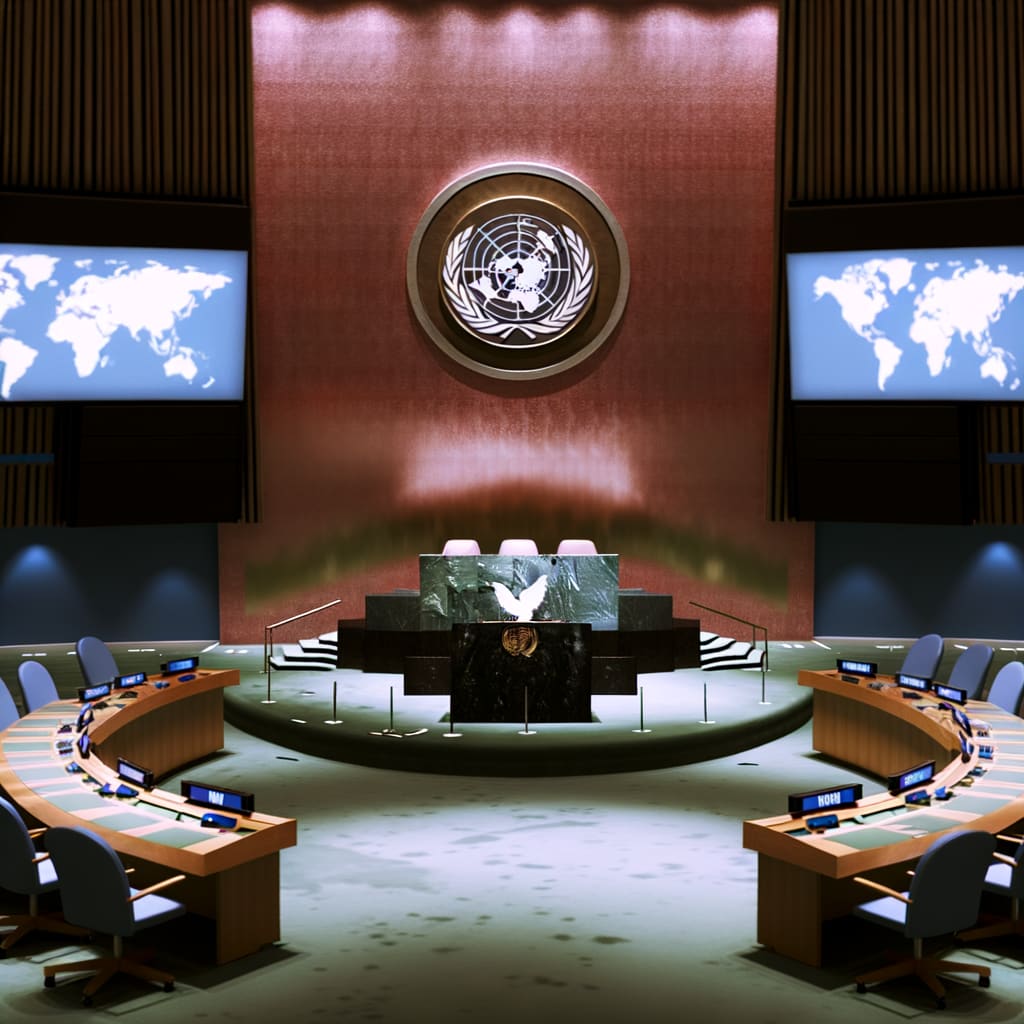Uncertainty Looms Over Gaza as Ceasefire Hangs In Balance
In a tense situation ahead of a significant UN vote, the future of Gaza remains uncertain with Israel's Prime Minister Benjamin Netanyahu expressing doubts about the longevity of the ceasefire. As the international community contemplates the creation of a stabilization force, Palestinian factions argue that such a move would violate Gaza's sovereignty, while Israel vows to disarm Hamas, despite opposition from the US.
A Fragile Peace
Despite a ceasefire agreement, UNRWA reports that Israel continues to block critical aid, raising concerns over a worsening humanitarian crisis. According to Tamara Alrifai, UNRWA's director of communications, Israeli authorities continue to impose heavy restrictions on the agency's operations, leading to severe bottlenecks.
Meanwhile, Netanyahu voiced his uncertainty about the ceasefire's duration and stressed that Israel is focused on concluding Phase A
while awaiting the return of three bodies held by Hamas. This uncertainty has been heightened by the upcoming UN Security Council vote on a draft plan for Gaza.
Divided Opinions on Disarmament and Stabilization Force
The draft plan for Gaza, which could allow for up to 20,000 international troops, faces opposition from both Israeli and Palestinian sides. Netanyahu has affirmed his commitment to disarm Hamas, a stance that has faced resistance from the US. Reports suggest Hamas is stockpiling advanced weapons abroad, further heightening tensions.
The Palestinian factions, meanwhile, argue that any peacekeeping force should be accountable only to the UN and should not involve the disarmament of groups active in Gaza. Hamas has rejected the UN plan for an international stabilisation force in Gaza, stating that such a force would favour Israel and violate the neutrality of the force.
International Reactions and Implications
With the Trump plan up for a UN vote, Antonio Guterres, the Secretary-General of the United Nations, has called for the diplomatic momentum to be translated into concrete measures on the ground. However, the US-drafted resolution for Gaza has drawn criticism for functioning as political cover for Israel's ongoing military campaign.
On the other hand, the US has warned of a 'real human cost' if the UN Security Council doesn't back its Gaza resolution. A rival motion has meanwhile been tabled by Russia and China, potentially setting up a scenario where both motions could be vetoed by one or more of the five permanent members of the security council.
Current Status
As the UN Security Council prepares to vote, the situation in Gaza remains precarious. With aid still blocked, a ceasefire in doubt, and diverging views on the proposed international stabilization force, the future of Gaza hangs in the balance. Both Israelis and Palestinians await the outcome of the UN vote, which could significantly shape the region's future.

